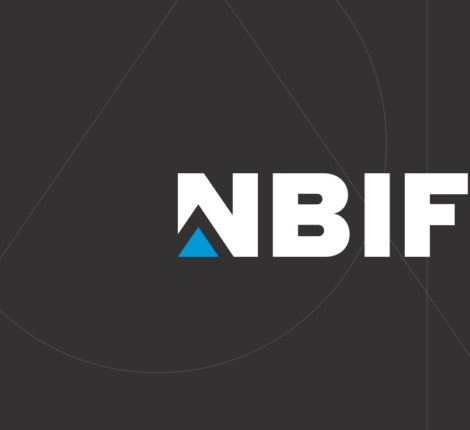- 14 novembre, 2011
- Recherche appliquée
- Comments : 0
Start-up Grants Boost Research
By Geoff Bird – Telegraph Journal | link to original article
In a University of New Brunswick lab in Fredericton, Felipe Chibante has been doing cutting edge research and innovation for nearly six years on a remarkable carbon structures called bucky balls.
The structures have incredible properties, and when lengthened into a tube, they have the ability to store energy at a far greater rate than the best solar panels available today. Bucky balls are cheap, versatile and when made into a plastic, easily recyclable. Solar panels made of the material could someday be as pliable, thin and possibly as inexpensive as plastic wrap.
Chibante said the research at his lab could play an important role in the future in a world with 9 billion people beset with the effects of a changing climate from heavy use of fossil fuels.
Chibante's goal: « Position ourselves so that New Brunswick is a global supplier of this material. »
« There's really an opportunity here to have disposable solar cells, much the same as we have disposable batteries now, » he said. « These could be made for pennies per lot. »
To be in the position to make that statement today, Chibante's lab was given an initial big boost five years ago by a New Brunswick non-profit that's had its hand in the creation of more than 40 other labs and research positions in the province. The New Brunswick Innovation Foundation has given nearly $2 million in startup grants to not only get labs off the ground, but also lure researchers into a province with universities that don't have the same amount of cash as North America's biggest schools.
In 2006, the foundation offered a $75,000 grant to Chibante, part of a package that enticed him back to his native Fredericton to take a research chair position at the University of New Brunswick. Previously, Chibante in Texas studying under Nobel Prize winning scientist Richard Smalley at Rice University, a man who was part of a team that discovered bucky balls.
« I think if I had come here without those kinds of funds, it would have delayed at least six months some of my efforts to raise funds for the lab, » Chibante said. « We were able to get going much quicker. »
Calvin Milbury, president and CEO of the New Brunswick Innovation Foundation, said he and his staff are selective in who gets startup grants. They must fit the foundation's mandate to grow the province through innovation, and they also must be outstanding researchers.
« That's the top third of researchers in their field. Someone who has published a great of articles on a subject matter, they have possibly secured patents, they have secured peer-reviewed funding, » Milbury said.
Universities or even research firms can apply for a startup grant of up to $100,000, requesting the money from the foundation in advance of giving a candidate an offer.
« The idea is that it acts as a sweetener to entice them to accept the offer, » Milbury said.
The money allows a researcher to set up a lab in a shorter time, which means their work will start funnelling out of the university faster.
« What we really get excited about is that we're building capacity to do innovation, in particular linking the researchers with the business community, » Milbury said.
Chibante, for example, is also involved with Smart Skin, a Fredericton startup that's developing a touch-sensitive skin using nanotechnology that will be as responsive as the touch screen of an iPhone. This summer, Smart Skin was deemed New Brunswick's most promising startup of the year at the KIRA Awards, a provincial event honouring the best New Brunswick information technology firms.
Milbury said the innovation foundation will give out grants in the $70,000 to $100,000 range to older, more experienced and proven researchers. It also hands out grants in the $30,000 to $50,000 range to researchers he calls « rising stars, » younger folks who may not have the huge body of work or experience, but stand out from their peers.
Adam Dyker is one of the rising stars, a New Brunswick native who was brought back from California in 2009 with the help of a $40,000 start-up grant. Dyker is now involved with KnowCharge, a Fredericton firm – in which the innovation foundation has a $200,000 venture capital investment – that's developing a paper battery.
« These researchers we're bringing back are the ones who are getting involved in a lot of innovation activities and end up supporting a lot of the entrepreneurial ventures in the province, » Milbury said.
In any of the innovation foundation's program, the goal is to use every $1 to leverage $5 more for the province.
« I think the impact of the start-up grants is much greater in the long run, » Milbury said.
« In the case of Marc Surette, he went on to get his Canada research chair, which is a $500,000 endowment over five years, he went on to apply for Canadian Foundation for Innovation funding and went on to secure a $3 million Atlantic Innovation Fund project from the Atlantic Canada Opportunities Agency. From that, he's developed patents that are leading to new companies, » Milbury said.
Surette, the Canada Research Chair in Cellular Lipid Metabolism at the Université de Moncton, received the foundation's largest-ever start-up grant.
« The $100,000 startup grant that I got in 2004 – that ended up planting the seeds for all the activities that are going on in my lab, some of which we hope to have an economic impact through patents, spinoff companies or royalties through partnerships with pharmaceutical companies, » said Surette.
Surette researches fat that's found in cell membranes, which is important in the maintenance of health and is involved in a lot of disease processes. Some of the best-known drugs target how these fat molecules communicate, such as Aspirin, for example.
His lab is working on developing an Omega-3 fatty acid from grain that will have similar health benefits as the same acid found in fish. Flax seed Omega-3 acids currently don't have the same positive health affects as fish oil.
That work led to a partnership with bio-food company Nature's Crops International, which has set up operations in New Brunswick and Prince Edward Island because of Surette's research, looking to grow and process Omega-3-producing grains in Atlantic Canada.
« Since they've set up shop here, they've decided to grow other crops that they typically grow in other parts of the world, » Surette said. « It was set up because of our project and it has had real economic benefit. »
Surette said further on that partnership will mean business for New Brunswick farmers, particularly in the Grand Falls area. Those farmers are used to strict protocols from McCain Foods, and are well suited for the strict systems required from the company. Nature's Crops doesn't make speculative purchases, Surette said, a great business partner for any farmer.
« But that's just one example of how things can spinoff, » Surette said. « And that's only one of our projects. »
Once the lab was up and running, the innovation foundation provided money for another of Surette's projects researching the fat molecule's role in cancer. The investment was used get preliminary data, which was then awarded grant money from the Canadian Institute for Health Research.
Surette said the project has now come full circle and has just been given money from Springboard Atlantic Inc.'s patent fund.
« That initial NBIF money ended up funnelling back to put in a patent application that we're going to put in over the next couple months for a possible diagnostic test for cancer, which could generate economic benefit either through a spinoff company or licensing it out for royalties. »
Milbury said the innovation foundation's start-up grant program is now generating clusters of researchers around the province's bigger names, creating a system that's begun to be self-perpetuating.
« When you're attracting proven researchers – the Marc Surettes, the Felipe Chibantes – it certainly is a signal that there's an opportunity in New Brunswick. It sends a nice signal to the research community about the capability of our universities, » Milbury said.
« Some of the younger researchers then want to move to New Brunswick to work along side them. »


